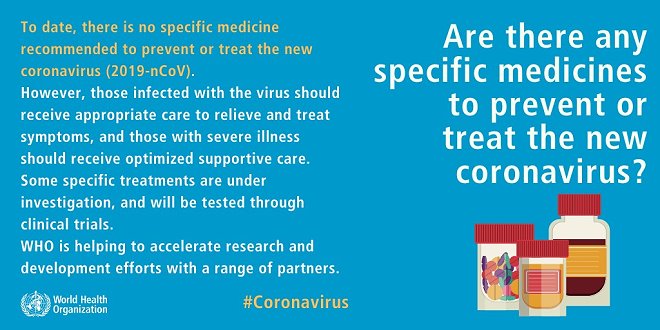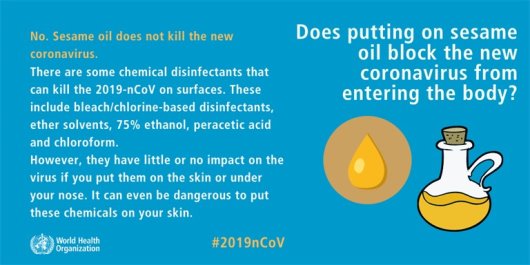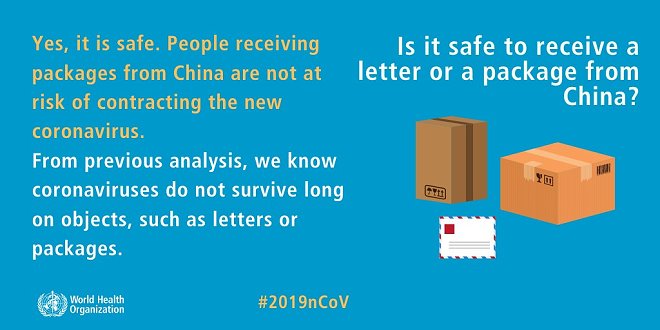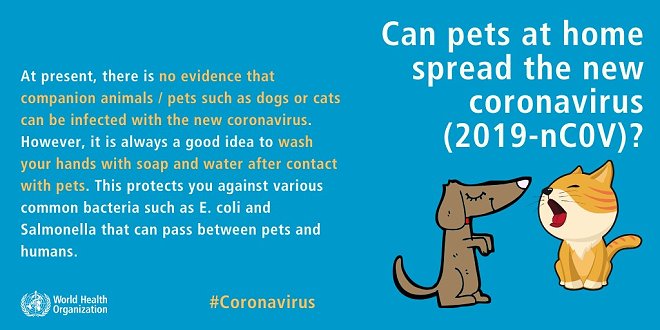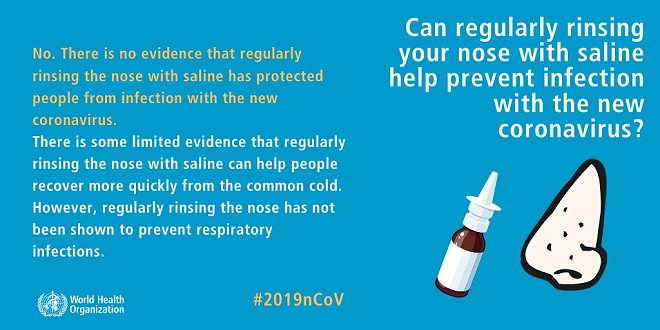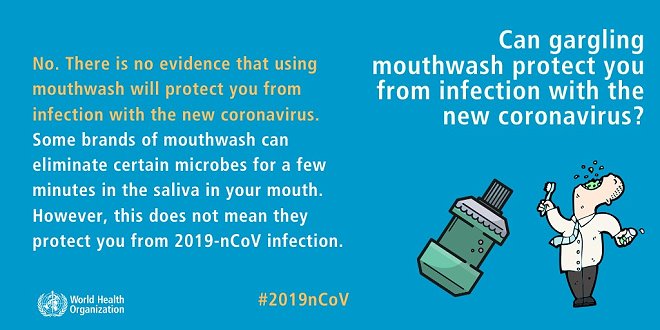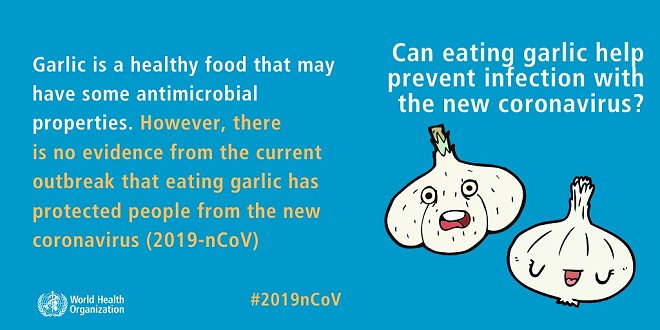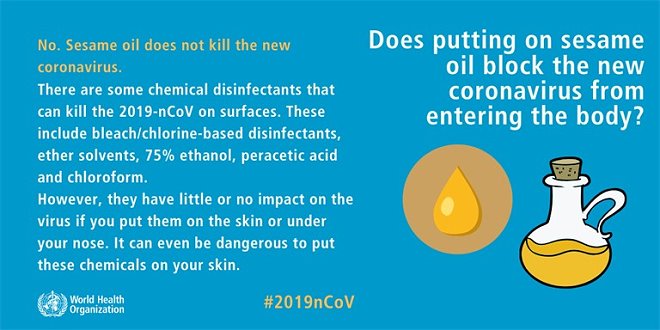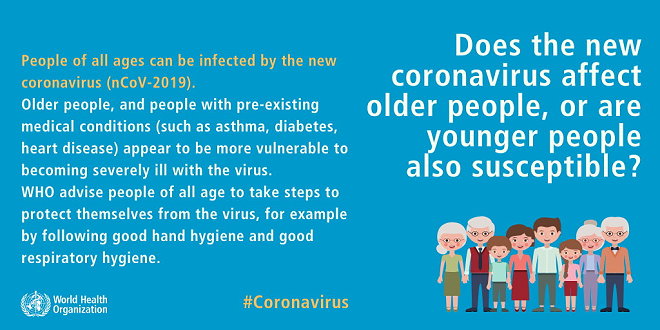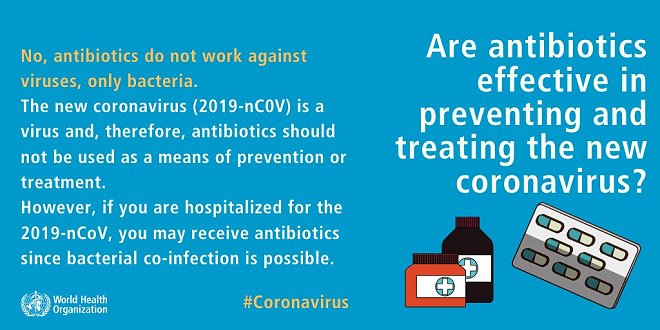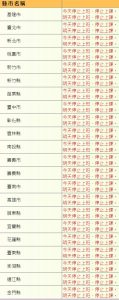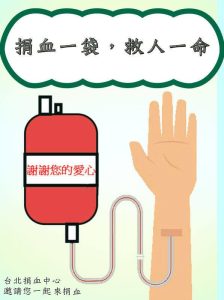2002-2004年間嚴重急性呼吸道症候群(SARS)疫情發生年代,那時網路資訊以電子郵件交流為主,消息傳播速度與範圍還算有限,但現在的新型冠狀病毒肺炎(Novel Coronavirus Pneumonia, NCP)蔓延時刻,卻是人手一個行動載具,網路信息以各種文字、影片、圖片形式無時無刻不大量的轟炸人們的眼睛與腦袋,應接不暇,於是有關如何防禦或醫治新冠病毒肺炎的各路消息、意見排山倒海而來,真真假假、假假真真,似真又似假、似假又似真,令人疑惑卻又好像可以相信。
聯合國世界衛生組織(World Health Organization, WHO) 日前在其網站貼出十個網路不當信息,並予以駁斥(Novel Coronavirus (2019-nCoV) advice for the public: Myth busters),以導正世人正確的防疫方法,我將之翻譯成中文,請參考。
一、從中國來的信件或包裹是否安全?
是的,這很安全。 接收從中國寄來的包裹不會有感染新冠狀病毒的風險。根據以前的分析,我們知道冠狀病毒無法在諸如信件或包裹之類的物品上長期存活。
Is it safe to receive a letter or a package from China?
Yes, it is safe. People receiving packages from China are not at risk of contracting the new coronavirus. From previous analysis, we know coronaviruses do not survive long on objects, such as letters or packages.
二、家裡的寵物會傳播新冠狀病毒(2019-nCoV)嗎?
目前沒有證據顯示新冠狀病毒會感染伴侶動物/寵物,例如狗或貓。 不過,跟寵物接觸後,用肥皂和水洗手是良好習慣, 這可以保護你免受可能在寵物和人類之間傳播的各種常見病菌(例如大腸桿菌和沙門氏菌)的侵害。
Can pets at home spread the new coronavirus (2019-nCoV)?
At present, there is no evidence that companion animals/pets such as dogs or cats can be infected with the new coronavirus. However, it is always a good idea to wash your hands with soap and water after contact with pets. This protects you against various common bacteria such as E.coli and Salmonella that can pass between pets and humans.
三、抗肺炎疫苗能保護你不會感染新冠狀病毒嗎?
不能的。針對肺炎的疫苗,例如肺炎球菌疫苗和B型流感嗜血桿菌(Hib)疫苗,無法提供針對新冠狀病毒的保護。
該病毒是全新且不同於以往的病毒,以至於需要有專屬的疫苗才有效。研究人員正在嘗試開發針對新冠狀病毒的疫苗,世衛組織也積極支持他們的努力。
儘管原來的其他疫苗對新冠狀病毒無效,但強烈建議接種呼吸道疾病疫苗以保護你的健康。
Do vaccines against pneumonia protect you against the new coronavirus?
No. Vaccines against pneumonia, such as pneumococcal vaccine and Haemophilus influenza type B (Hib) vaccine, do not provide protection against the new coronavirus.
The virus is so new and different that it needs its own vaccine. Researchers are trying to develop a vaccine against 2019-nCoV, and WHO is supporting their efforts.
Although these vaccines are not effective against 2019-nCoV, vaccination against respiratory illnesses is highly recommended to protect your health.
四、經常用生理食鹽水沖洗鼻子可以幫助預防感染新冠狀病毒嗎?
不可以的,沒有證據顯示常用生理食鹽水沖洗鼻子可以保護人們不會感染新冠狀病毒。
倒是有限的證據看出,時常用生理食鹽水沖洗鼻子可以幫助人們更快地從普通感冒中康復,而時常沖洗鼻子並不能預防呼吸道感染。
Can regularly rinsing your nose with saline help prevent infection with the new coronavirus?
No. There is no evidence that regularly rinsing the nose with saline has protected people from infection with the new coronavirus.
There is some limited evidence that regularly rinsing nose with saline can help people recover more quickly from the common cold. However, regularly rinsing the nose has not been shown to prevent respiratory infections.
五、漱口水可以保護你免受新冠狀病毒的感染嗎?
不能的。沒有證據顯示使用漱口水可以保護你不受到新冠狀病毒的感染。
一些品牌的漱口水可以很快消除口腔中的某些微生物,但這並不表示它們可以殺死新冠狀病毒而保護你免受感染。
Can gargling mouthwash protect you from infection with the new coronavirus?
No. There is no evidence that using mouthwash will protect you from infection with the new coronavirus.
Some brands or mouthwash can eliminate certain microbes for a few minutes in the saliva in your mouth. However, this does not mean they protect you from 2019-nCoV infection.
六、吃大蒜可以幫助預防新的冠狀病毒感染嗎?
大蒜可能具有某些抗菌特性,是一種健康食品, 但是從目前的暴發疫情中看不出吃大蒜可以對抗新冠狀病毒的侵害。
Can eating garlic help prevent infection with the new coronavirus?
Garlic is a healthy food that may have some antimicrobial properties. However, there is no evidence from the current outbreak that eating garlic has protected people from the new coronavirus.
七、塗抹芝麻油會阻止新冠狀病毒進入體內嗎?
不會的,芝麻油不會殺死新冠狀病毒。 有一些化學消毒劑可以殺死附在物體表面的新冠狀病毒,包括漂白劑/含氯消毒劑、75%的酒精、過氧乙酸和氯仿等。
但是,你把這些化學藥劑塗在皮膚或吸入鼻子,對病毒不但沒有影響,反而會危害到自己。
Does putting on sesame oil block the new coronavirus from entering the body?
No. Sesame oil does not kill the new coronavirus. There are some chemical disinfectants that can kill the 2019-nCoV on surfaces. These include bleach/chlorine-based disinfectants, either solvents, 75% ethanol, peracetic acid and chloroform.
However, they have little or no impact on the virus if you put them on the skin or under your nose. It can even be dangerous to put these chemicals on your skin.
八、老年人或年輕人比較容易感染新冠狀病毒嗎?
所有年齡層的人都可能感染新冠狀病毒。 老年人和患有慢性疾病(例如哮喘、糖尿病、心臟病)的人似乎較容易感染該病毒。
世衛組織建議所有年齡層的人都採取保護措施,例如養成良好的手部清潔習慣和遵守呼吸道衛生規定。
Does the new coronavirus affect older people, or are younger people also susceptible?
People of all ages can be infected by the new coronavirus (2019-nCoV). Older people, and people with pre-existing medical conditions (such as asthma, diabetes, heart disease) appear to be more vulnerable to becoming severely ill with the virus.
WHO advises people of all ages to take steps to protect themselves from the virus, for example by following good hand hygiene and good respiratory hygiene.
九、抗生素可以預防和治療新冠狀病毒嗎?
不,抗生素不能防禦病毒,只能抵抗細菌。
新冠狀病毒(2019-nCoV)是一種病毒,不是細菌,因此,不應將抗生素用作預防或治療的手段。
但是,如果您因感染新冠狀病毒住院,則醫生可能開立抗生素來預防細菌感染。
Are antibiotics effective in preventing and treating the new coronavirus?
No, antibiotics do not work against viruses, only bacteria.
The new coronavirus (2019-nCoV) is a virus and, therefore, antibiotics should not be used as a means of prevention or treatment.
However, if you are hospitalized for the 2019-nCoV, you may receive antibiotics because bacterial co-infection is possible.
十、是否有預防或治療新冠狀病毒的特效藥?
迄今為止,尚無推薦用於預防或治療新冠狀病毒的特效藥。
然而,感染了病毒的人是應該得到適當的護理以緩解和治療,而重症患者更應獲得最好的有效治療。一些特定的治療方法正在研發中,並將進行臨床實驗。 世衛組織正在幫助專業或合作夥伴一起加快這些研發工作。
Are there any specific medicines to prevent or treat the new coronavirus?
To date, there is no specific medicine recommended to prevent or treat the new coronavirus (2019-nCoV).
However, those infected with the virus should receive appropriate care to relieve and treat symptoms, and those with severe illness should receive optimized supportive care. Some specific treatments are under investigation, and will be tested through clinical trials. WHO is helping to accelerate research and development efforts with a range or partners.
延伸閱讀:
新冠肺炎大流行使全球旅遊業5千萬個工作面臨消失危機(中英對照)

